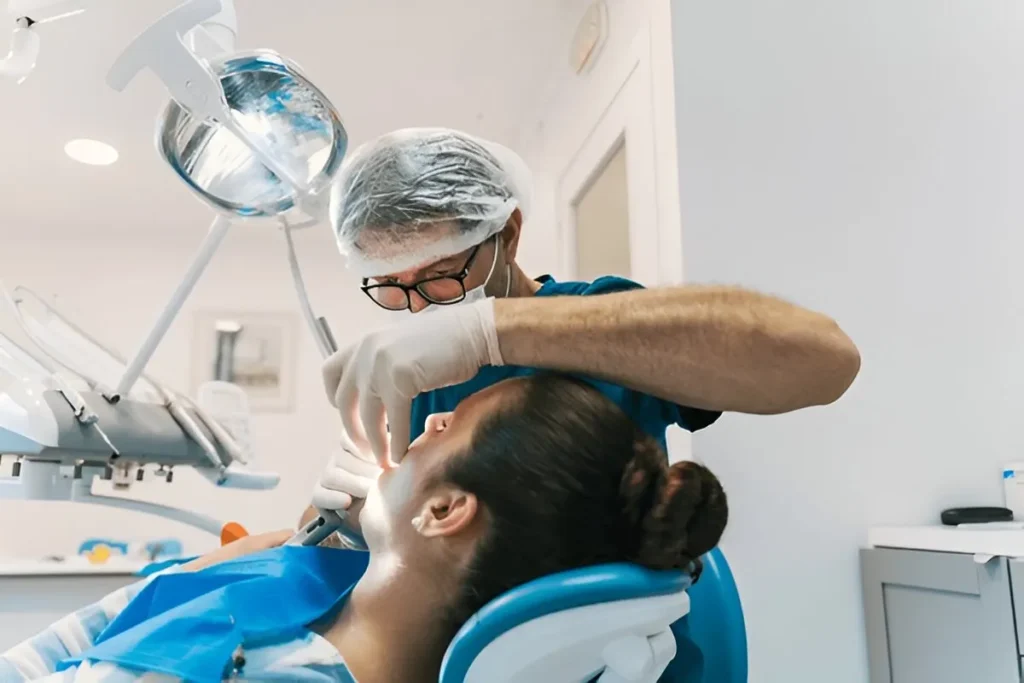Why Employee Medical Checkups Matter
Taking care of your employees’ health isn’t just a moral obligation—it’s a smart business move. Think of your workforce as the engine of your company. If the engine isn’t maintained, performance dips. That’s where regular employee medical checkups come in. In the bustling environment of Delhi, where stress levels are often through the roof and lifestyles can be chaotic, preventive healthcare is essential.
Scheduling periodic checkups can unearth potential health issues before they snowball into bigger problems. They help employers keep absenteeism low and performance high. An employee who feels valued and well-cared for is far more likely to show loyalty and give their best at work. Let’s break it down and see exactly how medical checkups can transform a workplace.
Early Detection Saves Lives
When health issues are caught early, the chances of recovery shoot up dramatically. Many lifestyle diseases—like diabetes, hypertension, and heart problems—are silent killers. They show almost no symptoms until they become serious. Regular checkups act as a safety net. They help in detecting anomalies that may not be visible but could be lurking beneath the surface.
Think of it as preventive maintenance. You don’t wait for your car to break down before taking it to the mechanic, right? Similarly, don’t wait for your employees to fall seriously ill before addressing their health concerns. With Delhi’s pollution levels, erratic food habits, and sedentary lifestyles, it’s even more important to be proactive.
Plus, regular screenings can also identify contagious diseases early, reducing the chances of them spreading within the workplace. This not only protects the workforce but also shows that the employer takes health and safety seriously.
Improved Productivity Through Better Health
A healthy employee is a productive employee—it’s that simple. When people feel well, both physically and mentally, they bring more energy, focus, and creativity to their roles. On the flip side, when someone is battling an undiagnosed illness, their performance inevitably suffers.
Medical checkups don’t just benefit the individual; they improve the entire workflow. Fewer sick days, reduced downtime, and better overall morale are just a few perks. Let’s not forget that when health issues are managed early, the cost of treatment is much lower—benefiting both the employee and the company’s insurance claims.
For employers in Delhi’s competitive business environment, this is a major advantage. Staying ahead of the curve means investing in your people, and health checkups are a small price to pay for a major payoff.
Boosting Morale and Workplace Culture
Imagine this: You walk into work and find that your company has scheduled a full medical checkup for all staff—free of charge. That’s a strong message. It tells employees, “We care about you.” It’s a gesture that goes a long way in boosting morale and fostering a positive workplace culture.
When staff members feel valued, they tend to go the extra mile. It creates a ripple effect—happy employees talk positively about their workplace, which boosts your company’s reputation. In cities like Delhi, where job switching is common, a good work culture can significantly reduce employee attrition.
Plus, wellness initiatives like checkups open the door for broader conversations around health—mental wellness, nutrition, fitness, and more. When these conversations start becoming normal in the workplace, you create an environment where people truly thrive.
Legal and Ethical Responsibilities of Employers
Whether you’re running a startup or managing a large corporate firm, your responsibilities don’t stop at offering salaries. In India, labor laws are increasingly nudging companies toward more responsible and ethical behavior—especially regarding health and safety.
Failing to provide a safe and healthy environment can result in legal repercussions. More importantly, it’s ethically wrong to overlook employee well-being, especially when preventive measures are easy to implement.
In Delhi’s urban corporate setup, where work pressure is intense, employers need to do more than just meet targets—they need to meet the human needs of their teams.
Compliance with Indian Labor Laws
While there is no single umbrella law mandating medical checkups for all industries in India, various sectors do fall under specific mandates. For example, the Factories Act, 1948, outlines that certain industrial units must conduct periodic health checkups for workers exposed to hazardous environments.
Moreover, laws around occupational health and safety are becoming more stringent. The Occupational Safety, Health and Working Conditions Code, 2020, aims to consolidate and streamline various labor laws, making health checkups an integral part of workplace norms, especially in high-risk industries.
Staying compliant isn’t just about ticking boxes—it’s about future-proofing your business. As India moves toward more globally aligned practices, regular employee health checkups are likely to become the norm rather than the exception.
Building a Responsible Brand Image
In today’s socially aware market, companies are judged not just by what they sell, but how they treat their people. Brands that prioritize employee well-being are seen as trustworthy and responsible. This perception can influence customers, investors, and potential talent.
In a competitive city like Delhi, where businesses are vying for both clientele and skilled workers, your brand image matters. By offering medical checkups and prioritizing health, you show that you’re invested in more than just profit margins. You’re investing in people.
Such practices also make for great employer branding content—something that HR and marketing teams can leverage to attract and retain top talent. It’s a win-win all around
Types of Employee Medical Checkups Available
Delhi offers a wide variety of medical checkup packages designed to suit different industries and job profiles. Whether you’re running an IT firm, managing a logistics operation, or overseeing a hospitality business, there’s a health checkup tailored for your needs. Understanding these different types of employee checkups will help you choose what’s right for your team.
Customizing checkups based on the roles, age, and risk exposure of employees ensures a more effective health monitoring system. Plus, when employees know the checkups are aligned with their specific work conditions, they feel more confident and secure in their workplace.
Let’s explore the most common types of medical checkups offered for employees in Delhi.
Pre Employment Health Screening
Pre employment medical screening test is the first step in building a healthy workforce. It helps ensure that new hires are physically and mentally fit to perform the tasks expected of them. In roles that demand physical exertion or involve exposure to chemicals, radiation, or machinery, this kind of screening is non-negotiable.
These checkups typically include basic vitals, blood pressure monitoring, vision and hearing tests, and general physical examination. Employers can also choose to include more specialized diagnostics like ECG, liver and kidney function tests, or drug and alcohol screening, depending on the job profile.
Doing this at the beginning of an employee’s journey sets a strong precedent. It signals that the organization values health right from the outset, and it helps avoid potential liabilities down the line.
Annual Full Body Checkups
Full body checkups are a great way to keep health in check and maintain employee efficiency. Over time, even the healthiest people can develop conditions due to stress, lifestyle changes, or age-related factors. A yearly full body health assessment helps catch those changes early.
These checkups generally cover:
-
- Complete Blood Count (CBC)
- Lipid Profile
- Liver and Kidney Function Tests
- Thyroid Check
- ECG and Chest X-ray
- Blood Sugar (Fasting and PP)
- BMI and BP Monitoring
Some organizations in Delhi even go a step further by offering nutrition counseling, fitness assessments, and personalized health plans based on these results.
Annual checkups build a culture of ongoing care. Employees begin to look forward to them as a benefit rather than an obligation, especially when results are delivered in an easy-to-understand, confidential manner.
Specialized Health Checkups Based on Job Role
Not all jobs are created equal—some demand physical labor, others involve long hours in front of screens, and some include high-stress responsibilities. Specialized checkups help tailor health assessments based on the specific risks involved.
For example:
- IT and desk job professionals benefit from eye testing, spine and posture evaluation, and mental health screenings.
- Construction and manufacturing workers need respiratory checks, hearing tests, and screenings for skin and chemical exposure.
- Sales and marketing professionals—always on the move—can benefit from cardiac stress tests and fatigue assessments.
- Night shift workers should undergo hormonal and sleep-related evaluations.
This level of detail ensures employees feel seen and cared for in ways that genuinely support their daily work challenges. It’s this kind of personalization that makes a wellness program truly impactful.
Components of a Comprehensive Medical Checkup
A comprehensive health checkup isn’t just about a few random tests. It’s a structured and well-thought-out evaluation of an individual’s overall health. In the context of employee care, it must be extensive enough to cover all major health markers while remaining practical and non-intrusive.
In Delhi, healthcare providers offer both in-clinic and on-site health checkup services, depending on the company’s preference. The goal is to ensure the process is as smooth and stress-free as possible for both HR teams and employees.
Here are the main components of a quality health screening.
Physical Examination
The physical exam is the foundation of any medical checkup. It includes a full review of the employee’s medical history, lifestyle factors (smoking, alcohol, exercise), and any ongoing health issues or symptoms. Doctors check vital signs like:
- Blood pressure
- Heart rate
- Body temperature
- Respiratory rate
- Height and weight
- Body Mass Index (BMI)
This part of the checkup helps flag any visible signs of health concerns—like obesity, high blood pressure, or irregular heartbeat. It’s a great starting point for more detailed diagnostic tests that follow.
A one-on-one interaction with a physician also gives employees a chance to ask health-related questions in a safe, confidential setting.
Blood Tests and Diagnostics
Blood tests are the powerhouse of any medical checkup. They tell you what’s going on under the hood—things that aren’t visible but could be seriously impacting health. For employees, especially those working in high-pressure environments like those common in Delhi, regular blood diagnostics are essential.
Common blood tests include:
- CBC (Complete Blood Count): Checks for infections, anemia, and other blood disorders.
- Lipid Profile: Evaluates cholesterol levels to assess heart disease risk.
- Blood Sugar Tests (Fasting & PP): Detects diabetes or prediabetes.
- Liver Function Test (LFT): Ensures the liver is processing toxins properly.
- Kidney Function Test (KFT): Identifies potential kidney damage or inefficiency.
- Thyroid Profile: Checks for hypo- or hyperthyroidism, which can affect energy levels and weight.
- Vitamin D & B12: Essential for bone health and nerve function—both of which are often deficient in urban dwellers.
These tests give employees a detailed snapshot of their health and help doctors give precise advice. For companies, it means reducing the risk of major illnesses that lead to long-term absenteeism.
Diagnostic screenings such as ECG (Electrocardiogram), chest X-rays, and ultrasound scans may also be included based on age or job risk factors. This layered approach ensures nothing slips through the cracks.
Vision, Hearing, and Dental Evaluations
While most companies focus heavily on heart tests and diabetes tests, sensory health often takes a backseat—until it becomes a problem. Vision, hearing, and dental health are crucial aspects of employee well-being and shouldn’t be ignored.
Vision Tests: These help detect refractive errors, cataracts, and early signs of eye strain—especially relevant for employees working long hours on screens. Regular testing ensures timely prescription updates and prevents issues like chronic headaches and vision fatigue.

Hearing Tests: Noise-induced hearing loss is common in manufacturing, aviation, and construction sectors. Audiometry tests are non-invasive and help identify hearing damage early. Even in office settings, early signs of hearing impairment should not be overlooked.

Dental Checkups: Poor oral health is linked to heart disease, diabetes, and digestive issues. Employees who experience gum disease, tooth pain, or oral infections may not always speak up, but it affects their concentration and mood. Periodic dental screenings and cleanings can solve this.

Including these evaluations in annual checkups showcases a truly holistic approach to employee care.
Common Health Risks in the Workplace
Even the best offices have hidden health risks. The nature of modern work—especially in fast-paced urban centers like Delhi—comes with its own challenges. Understanding the most common workplace health risks helps employers design better wellness programs and create safer work environments.
Let’s dig into the three major categories of health risks employees commonly face.
Sedentary Lifestyle Diseases
Most corporate employees in Delhi are glued to their desks for 8-10 hours a day. This sedentary lifestyle leads to a host of issues, including:
- Obesity
- High blood pressure
- Poor posture and back pain
- Type 2 diabetes
- Cardiovascular problems
When combined with poor eating habits and lack of exercise, these issues become serious threats. Office setups should promote standing desks, walking meetings, and regular movement breaks. Health checkups can flag early signs of metabolic syndrome or obesity-related complications, allowing for timely intervention.
Employers can also consider including nutrition and physical activity counseling in their health programs, making it easier for employees to adapt healthier habits.
Occupational Hazards and Job-Related Illnesses
Every industry has unique hazards. Factory workers may be exposed to chemicals, IT professionals may develop repetitive stress injuries, and hospitality staff may suffer from sleep disorders due to erratic schedules. Without proper checks, these hazards slowly take a toll on health.
Some job-specific issues include:
- Respiratory problems from pollution or chemical exposure
- Carpal Tunnel Syndrome from repetitive computer use
- Back and neck strain from poor ergonomics
- Gastrointestinal problems due to irregular meal times



Respiratory problems Carpal Tunnel Syndrome Back and neck strain

Gastrointestinal problems
A detailed health checkup, tailored to the job role, helps catch these issues before they escalate. Moreover, conducting a workplace safety audit alongside health screenings makes the program more comprehensive and impactful.
Mental Health and Stress Management
One of the biggest silent killers in today’s work culture is stress. Delhi’s work environment, compounded by long commutes and hectic lifestyles, often leads to anxiety, burnout, and depression. Yet, mental health is often the most overlooked part of employee well-being.
Including mental wellness assessments in checkups—such as psychological evaluations, stress tests, or one-on-one counseling—can make a world of difference. Employees might not always speak up, but if they have a safe, confidential space, they are more likely to seek help.
Employers should normalize mental health discussions and provide access to mental wellness tools like therapy sessions, meditation workshops, or stress management webinars.
Creating an emotionally safe workplace isn’t just good ethics—it also drives productivity and employee retention.
How to Organize Employee Health Checkups in Delhi
Getting started with employee medical checkups doesn’t have to be a logistical nightmare. Delhi, being a major metro city, is home to numerous healthcare providers offering corporate health solutions that are flexible, scalable, and customizable. The key is to plan strategically and communicate clearly with your team.
Start by assessing your workforce’s needs—age groups, job roles, work schedules, and potential risk factors. Next, choose a healthcare provider that offers comprehensive checkup packages tailored to your company size and sector. You can opt for:
- On-site health camps
- Off-site clinic-based packages
- Hybrid options
Set clear timelines, ensure minimal disruption to work, and offer appointment flexibility. Also, guarantee that reports are confidential and easily accessible. Employees should feel safe and comfortable throughout the process.
Finally, make this a recurring part of your annual calendar. Health checkups should be part of your organization’s culture, not a one-time event.
Encouraging Employee Participation
Even the most well-planned checkup is pointless if employees aren’t actively participating. Unfortunately, health often takes a backseat, especially when employees feel too busy or fear receiving bad news.
So, how do you change that mindset?
- Educate your team: Use internal newsletters or meetings to explain the benefits of early detection and regular monitoring.
- Lead by example: Let managers and leadership participate first—it sets the tone.
- Make it rewarding: Offer small incentives like wellness vouchers, health kits, or even a “Healthy Employee of the Month” program.
- Ensure privacy: Employees are more likely to participate when they know their health data will be kept confidential.
- Simplify the process: Choose providers who offer digital scheduling, online reports, and easy follow-ups.
A healthy workforce starts with awareness. Once your employees see the personal value of health screenings, participation will naturally increase.
Tracking and Analyzing Health Data (While Respecting Privacy)
The real power of employee health checkups lies in the data. When you start seeing trends—like increasing cases of vitamin deficiencies, obesity, or stress—you can make targeted wellness interventions.
Use aggregate data (not individual results) to identify high-risk areas. For instance:
- High cholesterol levels across departments might point to poor dietary habits.
- A pattern of back pain complaints could mean your workstations need ergonomic upgrades.
- A spike in stress scores may indicate toxic workloads or poor work-life balance.
The idea isn’t to micromanage individual health but to get a macro view of workplace wellness. Partner with your healthcare provider to design actionable strategies based on these insights. Just ensure all personal health data is handled with full confidentiality and in compliance with privacy laws.
The Long-Term ROI of Investing in Employee Health
Many businesses still view employee health programs as an expense rather than an investment. But the numbers say otherwise. Companies that prioritize health checkups consistently report:
- Lower absenteeism
- Reduced health insurance claims
- Improved employee retention
- Higher morale and engagement
And that’s just the financial side. Healthy employees are happier, more energetic, and more creative. They contribute more to innovation and team success. It’s like investing in better machinery—only this time, the “machines” are your people.
In a city like Delhi, where the pace is fast and the competition intense, prioritizing health gives your company a competitive edge. It sets the stage for sustainable growth and a reputation as a caring, forward-thinking employer.
Conclusion
Booking regular medical checkups for your employees is no longer optional—it’s essential. Especially in a dynamic city like Delhi, where health risks are compounded by urban living, investing in preventive healthcare can safeguard not just your team, but your entire organization’s future.
From early disease detection and improved productivity to stronger team morale and legal compliance, the benefits of employee health checkups are wide-reaching. With a thoughtful approach, even a small company can implement an effective health screening program that pays off for years to come.
So don’t wait until something goes wrong. Start today. Because a healthier workforce isn’t just a happier one—it’s also a more successful one.
FAQs
- How often should employee health checkups be conducted?
Ideally, a comprehensive health checkup should be offered annually. However, for high-risk industries or aging employees, bi-annual checkups may be more beneficial. - Can small businesses afford to offer health checkups?
Absolutely. Many clinics in Delhi offer cost-effective group packages tailored to small teams. Even a basic health checkup can make a big difference. - What if employees are hesitant to participate?
Create awareness, ensure privacy, and offer incentives. When people see the benefits and feel safe, participation increases naturally. - Do health checkups cover mental health assessments?
Yes, many modern corporate wellness programs include stress and psychological assessments, counseling sessions, and even mindfulness training.
5. Is it mandatory by law to conduct health checkups?
In some sectors like manufacturing or hazardous environments, it’s required by law. For others, it’s strongly recommended as part of best HR practices.


Leave a Reply